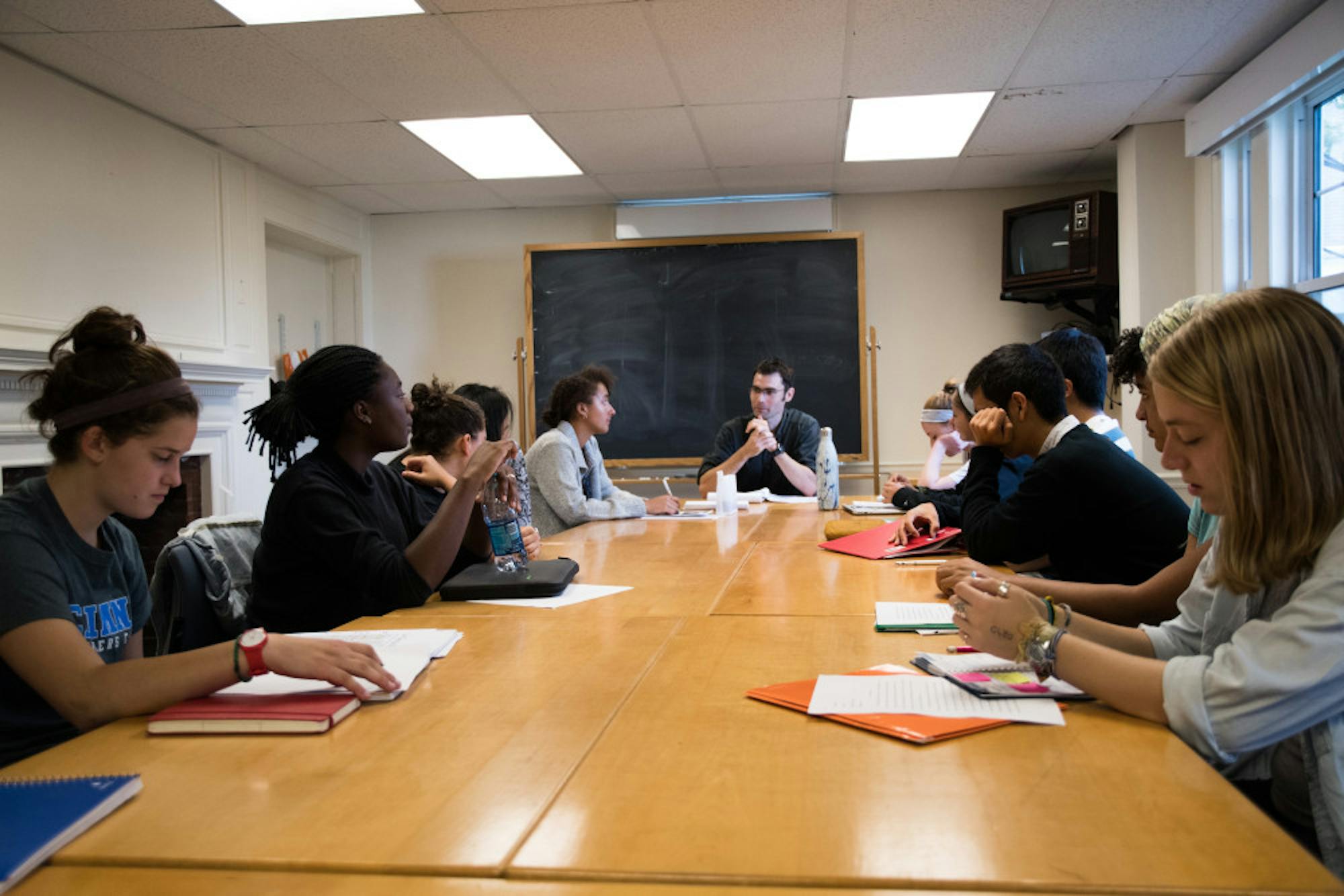A post on Tufts’ Student Life website in October 2016 announced that the university would be changing its credit system by fall 2018, switching from the one-course, one-credit model to a new credit-hour system that takes into account time spent doing work outside the classroom.
Carmen Lowe, the dean of undergraduate studies, and Phil Miller, Tufts Community Union (TCU) Senate’s education committee chair, both said that the switch to the credit-hour system comes from a standard federal audit.
“The biggest reason for the change is that the federal government said, ‘The system that you have now makes no sense,’” Miller, a sophomore, said. “Some people are not graduating having spent enough time in the classroom.”
Miller explained that prior to this change, Tufts was one of the few schools not using the credit-hour system, making transfer of credit difficult.
Miller also said that all courses taken prior to fall 2018 will be assigned four credits across the board to keep everyone on track to graduate on time. In the future, however, the standard number of credit hours assigned to each class will be three, and this will apply to the majority of classes across departments.
Miller explained that all departments have had opportunities to petition to assign more credit hours to classes with heavier workloads. These petitions were subject to approval by a curriculum committee comprised of students and faculty.
He said that lab sciences, language courses and courses with recitations would be worth more than three credit hours under the new system. Many courses will be listed with four credits, and a few will be counted as five.
Three credit hours spent in class correspond to six hours spent on work outside of the class, including meetings with teachers during office hours, homework and group project meetings, Lowe explained. She added that all departments had the chance to petition to assign any of their courses a higher number of credits.
Lowe said that this opportunity to petition for more credit prompted departments to reconsider and further develop aspects of their classes that were previously informal.
According to Lowe, the Department of English elected not to make this change, though other humanities and social sciences departments, like philosophy and political science, did alter the number of semester hour units per course.
“The English Department decided that each of its courses would be worth three credits. This is the standard number across the School of Arts and Sciences, and we saw no need to petition for extra credits,” Joseph Litvak, chair of the English department, told the Daily in an email.
Litvak added that he does not think the transition will make majoring in English more difficult. He explained that the required number of courses for the major will remain 10.
“I don’t think the new credit-hour system will make any difference in the English program or in the kinds of students who choose to major in English,” Litvak said.
However, according to Lowe, students are required to take 15 credit hours on average per semester. Assuming that courses not required for the major average to three credit hours as well, English majors will have to take five three-credit courses each semester.
“Students majoring in the humanities might have to take more courses on average [than non-humanities majors to graduate],” Lowe said.
Miller explained that the students who will be most disenfranchised by this system are those not on track to graduate already.
“At the end of the day, most people are on the track to take enough credits to graduate. It’s just the few [who] are not — who take the minimum amount of classes to graduate — [who] may be caught right now,” Miller said.
Lowe emphasized that the system will take into account the variety in students’ course selections as much as possible while keeping Tufts in line with a national standard. She gave the example of a student taking a difficult chemistry course, a time-consuming language and a writing-intensive class all at once.
The credit-hour system could act as an incentive for students to take more difficult classes, since their work outside of class would be formally accounted for, Lowe said.
“This [system] is just trying to reflect the reality that students are going to face in their classes while they’re putting together a course load,” Lowe said.
David Park, a sophomore double-majoring in English and biology, said he was worried about potentially having to take more courses to graduate. He spoke about the difficulty inherent in English classes. Park suggested that the way English classes operate reveals a limitation of the credit-hour system, which counts credit based solely on structured time outside of class. He said that unstructured time spent thinking and reflecting is essential to the English major.
“Even if you’re not concretely doing any type of homework outside of the class, there’s still a lot of thinking that goes into planning your essays, planning your readings and being able to understand everything,” Park said.
Park said that, even under the current system, the amount of work he must juggle forces him to cut short the time he devotes to studying English. He said that balancing biology and English major requirements with foundation and distribution requirements causes him to feel like he is spreading himself thin.
“It’s been pretty hard for me to find the time to set aside to really absorb all the information … from the text that I’m reading,” he said.
Miller expressed that despite the potential disadvantages of the credit-hour switch, he thinks it may meet some changes as the system is being implemented.
“I’m sure reevaluation will continue as … the system is put into play,” Miller said.
Students, administrators contemplate potential effects of switch to credit-hour system

Adam Spellmire, a lecturer at Tufts, teaches an expository writing class on Sept. 21.





